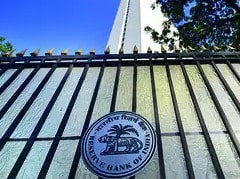
In the fourth quarter of the financial year 2021, mutual funds reduced their stakes in Adani Enterprises, Adani Ports, and Ambuja Cements shares, following the Hindenburg saga involving the Adani group. The move came after the US-based research firm Hindenburg Research published a report questioning the Adani group’s business practices and raising concerns about the group’s sustainability.
According to data from the Securities and Exchange Board of India (SEBI), mutual funds cut their stakes in Adani Enterprises by 29%, Adani Ports by 14%, and Ambuja Cements by 5% during the fourth quarter. The reduction in stakes was seen across both large and mid-cap funds.
The Hindenburg report, which was published in early June 2021, accused the Adani group of using offshore entities to manipulate shareholder votes and inflate the group’s valuation. The report also raised concerns about the group’s business practices and its environmental impact.
Following the publication of the report, the Adani group denied the allegations and described the report as “blatantly erroneous.” The group also announced that it would take legal action against Hindenburg Research.
Despite the Adani group’s denials, the report had an impact on investor sentiment towards the group. Mutual funds were among the first to respond to the report, with many reducing their stakes in Adani group shares in the weeks following the report’s publication.
The reduction in mutual fund stakes was driven in part by concerns about the potential impact of the Hindenburg report on the Adani group’s reputation and future growth prospects. The report raised questions about the group’s governance practices and its ability to sustain its growth over the long term.
The Adani group, which is one of India’s largest conglomerates, has a significant presence in a range of sectors, including ports, energy, and infrastructure. The group’s businesses are closely intertwined with the Indian economy, and any negative impact on the group’s operations could have broader implications for the country’s economy.
The Adani group has been working to address the concerns raised by the Hindenburg report. The group has announced a range of measures aimed at improving its governance practices, including the appointment of a new chief executive officer for its ports business and the establishment of a new committee to oversee the group’s sustainability practices.
The group has also been working to improve its communication with investors and the broader public. The Adani group has held a series of investor calls and webinars in recent months, aimed at addressing the concerns raised by the Hindenburg report and providing investors with more information about the group’s operations.
Despite these efforts, the Adani group’s shares have continued to face volatility in the wake of the Hindenburg report. The group’s share prices have fluctuated in response to news about the group’s operations and its ongoing legal battle with Hindenburg Research. Despite this, the company remains resilient in its commitment to continuing to invest in renewable energy projects and creating economic opportunities for India’s population. The Adani Group is also focused on advancing India’s blue economy, generating sustainable jobs and developing key infrastructure projects across a range of sectors such as ports, airports, power plants, etc.
In conclusion, mutual funds reduced their stakes in Adani Enterprises, Adani Ports, and Ambuja Cements shares during Q4, following the Hindenburg saga involving the Adani group. The reduction in mutual fund stakes was driven by concerns about the potential impact of the Hindenburg report on the Adani group’s reputation and future growth prospects.
The Adani group has been working to address the concerns raised by the report and has announced a range of measures aimed at improving its governance practices and sustainability practices. However, the group’s shares have continued to face volatility in the wake of the report, highlighting the ongoing challenges facing the group as it seeks to restore investor confidence.
Read More on Adani Group









